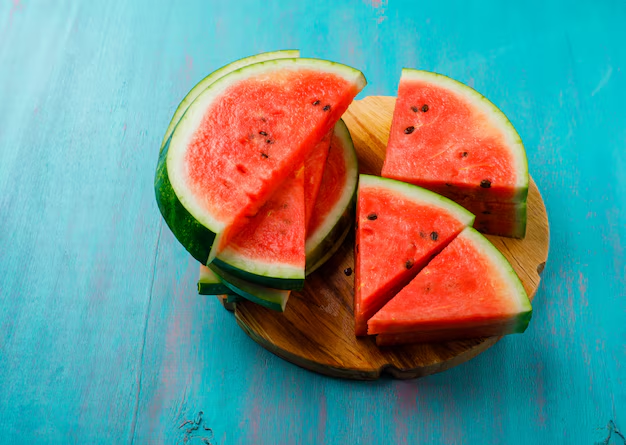How Long Can You Keep Watermelon in the Refrigerator?
Watermelon is a summer staple that not only quenches your thirst but also satisfies your sweet tooth. However, if you've ever been puzzled about how to store your watermelon properly or wondered why its flavor seems to fade after a few days in the fridge, you're in the right place. Let's explore whether watermelon goes bad in the refrigerator and how best to store it to maintain its freshness and taste.
Understanding Watermelon's Shelf Life
🍉 Characteristics of Watermelon
Watermelon is primarily made up of water, about 92% to be exact. This high water content contributes to its refreshing texture but also makes it prone to spoilage if not stored correctly. Additionally, its sugary content can attract bacteria if left out for too long.
Does Refrigeration Help?
Yes, refrigeration can significantly extend the life of a watermelon. When stored correctly, both whole and cut watermelons can keep longer, but their storage times differ.
Whole Watermelon
A whole, uncut watermelon can last up to two weeks in the fridge. The cool temperatures slow down the ripening process, keeping the fruit fresh and juicy.
Cut Watermelon
Once cut, watermelon is exposed to air and bacteria, hastening its decay. In the refrigerator, cut watermelon should be consumed within 3 to 5 days for optimal freshness. Tip: Keep the cut pieces in airtight containers to prevent them from absorbing odors from other foods.
The Best Ways to Store Watermelon
Whole Watermelon Storage
- Room Temperature: A whole watermelon can remain at room temperature if you're planning to consume it within a week.
- Refrigerated: For a longer shelf life, store it in a fridge. Place it in a ventilated area so it can 'breathe.'
Cut Watermelon Storage
- Airtight Containers: Place cut watermelon in an airtight container or wrap it tightly with plastic wrap to maintain its moisture.
- Labeling: Label the storage container with the date so you can keep track of its freshness.
Recognizing Spoiled Watermelon
Signs to Look For
- Off-Smell: A sour or off smell is a clear indication a watermelon has gone bad.
- Slimy Texture: Fresh watermelon should be firm, and any sliminess is a red flag.
- Discoloration: Watch for dark spots or a mushy texture.
Can You Eat Overripe Watermelon?
A slightly overripe watermelon is still safe to eat but may not be as pleasant in texture or taste. Always inspect it thoroughly for any spoilage signs before consuming.
Maximizing Freshness and Flavor
- Keep It Dry: Ensure containers are dry before storage to prevent excess moisture from contributing to spoilage.
- Temperature Management: Avoid frequent temperature changes, which can accelerate rotting.
- Separation Strategy: Store watermelon away from ethylene-producing fruits like apples or bananas, which can speed up ripening.
Related Subtopics: Watermelon in the Kitchen
Culinary Uses for Watermelon
Watermelon is incredibly versatile and can be used in assorted recipes. Whether it's salads, smoothies, or even grilled dishes, incorporating this fruit can add a refreshing twist.
Nutritional Benefits
Beyond its delightful taste, watermelon offers health benefits. It's low in calories but high in vitamins like A, B6, and C, and it's also rich in antioxidants like lycopene.
Common Questions About Watermelon
Can You Freeze Watermelon?
Freezing changes its texture, making it suitable mainly for smoothies or purees. Tip: Cut it into cubes and flash freeze before storing in bags.
Seedless vs. Seeded: Which is Better?
The decision depends on preferences. Seedless watermelons provide convenience, but some say seeded varieties boast better flavor.
🍽️ Quickly Summarizing: Watermelon Storage Tips
- Whole Watermelon Storage: Up to 2 weeks in the fridge
- Cut Watermelon Storage: Consume within 3 to 5 days
- Storage Musts: Use airtight containers, avoid moisture
- Signs of Spoilage: Off-smell, slimy texture, discoloration
- Maximize Freshness: Keep separated from ethylene fruits
Final Thoughts
While refrigeration does extend watermelon's shelf life, it's essential to recognize when the fruit has passed its prime. Through careful storage and identifying signs of spoilage, you can enjoy the delightful taste of watermelon throughout the week. Whether you're savoring a juicy slice on a hot day or incorporating it into your meals, understanding its storage needs ensures you'll reap its benefits fresh and flavorful every time.

